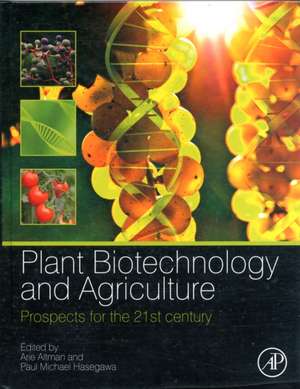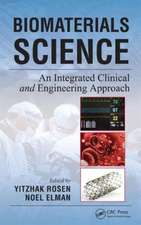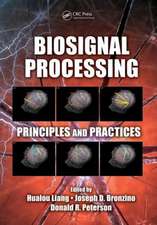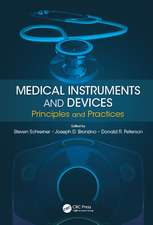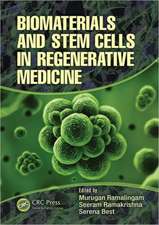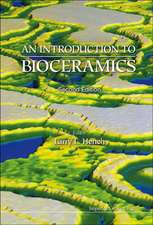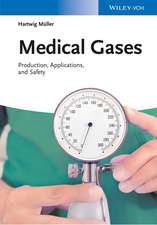Plant Biotechnology and Agriculture: Prospects for the 21st Century
Editat de Arie Altman, Paul Michael Hasegawaen Limba Engleză Hardback – 22 dec 2011
This book begins by laying the foundations for plant biotechnology by outlining the biological aspects including gene structure and expression, and the basic procedures in plant biotechnology of genomics, metabolomics, transcriptomics and proteomics. It then focuses on a discussion of the impacts of biotechnology on plant breeding technologies and germplasm sustainability. The role of biotechnology in the improvement of agricultural traits, production of industrial products and pharmaceuticals as well as biomaterials and biomass provide a historical perspective and a look to the future. Sections addressing intellectual property rights and sociological and food safety issues round out the holistic discussion of this important topic.
- Includes specific emphasis on the inter-relationships between basic plant biotechnologies and applied agricultural applications, and the way they contribute to each other
- Provides an updated review of the major plant biotechnology procedures and techniques, their impact on novel agricultural development and crop plant improvement
- Takes a broad view of the topic with discussions of practices in many countries
Preț: 925.12 lei
Preț vechi: 1198.49 lei
-23% Nou
Puncte Express: 1388
Preț estimativ în valută:
177.08€ • 192.41$ • 148.84£
177.08€ • 192.41$ • 148.84£
Carte tipărită la comandă
Livrare economică 14-28 aprilie
Preluare comenzi: 021 569.72.76
Specificații
ISBN-13: 9780123814661
ISBN-10: 0123814669
Pagini: 624
Dimensiuni: 216 x 276 x 36 mm
Greutate: 1.86 kg
Editura: Elsevier
ISBN-10: 0123814669
Pagini: 624
Dimensiuni: 216 x 276 x 36 mm
Greutate: 1.86 kg
Editura: Elsevier
Public țintă
Primary: researchers in genetics, biology, biotechnology, pharmacology, and plant scienceSecondary: agricultural engineers, environmental biologists, environmental engineers, food scientists, and environmental microbiologists; graduate and post-doctoral students in these areas of science
Cuprins
Preface
Index
- Introduction: The scope of plant biotechnology and its impact on agriculture
- Introduction to basic procedures in plant biotechnology
- Breeding biotechnologies
- Plant germplasm
- Controlling plant response to the environment: Abiotic stress
- Controlling plant response to the environment: Biotic stress
- Biotechnological improvement of yield and quality traits
- Plants as factories for industrial products, pharmaceuticals and biomaterials
- Plants and crop residues for bioenergy
- Commercial, legal and public aspects
- Prospects, limitations and sociological considerations of agricultural plant biotechnologies
- Concluding remarks
Index
Recenzii
"This book is a highly readable compendium of comprehensive essays on the present-day state of agricultural plant biotechnology. Each chapter is written by experts from across the globe. The book begins with a discussion of the rationale for the use of biotechnology in agriculture. It then addresses the principles of crop domestication including the increasing role of biotechnology, and provides a brief overview of the biology and genetics of crop biotechnology. The rest of the book describes the techniques and technologies used in plant biotechnology. Contributors discuss research methodologies as well as biotechnology crop development practices; topics include genetic engineering, germplasm collecting, and proteomics. Special coverage is given to the role of biotechnology in alleviating food availability problems and poverty in developing nations. Each chapter ends with a brief conclusion and ample primary references. Charts, figures, and graphs support the text when appropriate. Summing Up: Recommended. All students, researchers/faculty, and professionals; informed general readers"--CHOICE, August 2012, Vol. 49, No 11, page 152
